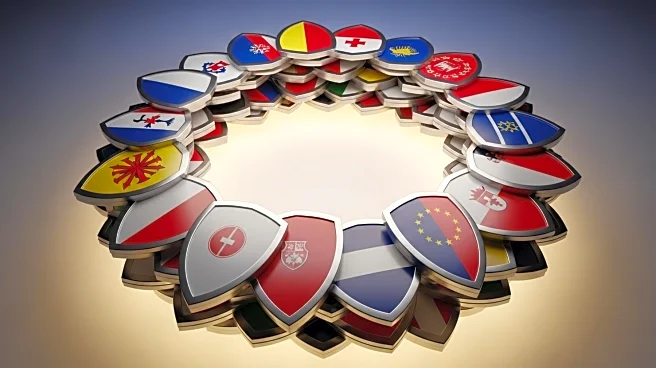What's Happening?
European leaders are increasingly concerned about Russia's actions, which have been described as a permanent security threat to the continent. Luxembourg's Prime Minister Luc Frieden emphasized the seriousness of the situation, noting recent airspace violations by Russian jets and drones reported by Poland, Romania, and Estonia. Denmark has also experienced several drone incidents, potentially linked to Moscow. Despite these provocations, Frieden stated that Europe is not currently at war with Russia, although the threat remains significant. EU leaders are considering new defense measures, including a 'drone wall' near the Russian border, to address these security challenges.
Why It's Important?
The ongoing tensions with Russia have significant implications for European security and defense policies. The airspace violations and drone incidents highlight the need for enhanced surveillance and defense mechanisms. The potential establishment of a 'drone wall' could serve as a deterrent against further provocations, impacting defense budgets and international relations. European nations must balance the need for security with diplomatic efforts to avoid escalation into open conflict. The situation also affects U.S. interests, as stability in Europe is crucial for global security and economic partnerships.
What's Next?
EU leaders are set to debate the implementation of new defense strategies, including the proposed 'drone wall.' This measure aims to bolster security in Eastern Europe and prevent further Russian incursions. The discussions will likely involve considerations of cost, technological capabilities, and international cooperation. European countries may also seek support from NATO allies, including the U.S., to enhance their defense posture. The outcome of these debates could shape future European defense policies and influence relations with Russia.
Beyond the Headlines
The situation raises ethical and legal questions about sovereignty and the use of drones in international conflicts. The potential for a 'hybrid war' with Russia challenges traditional notions of warfare and requires innovative approaches to security. Long-term, this could lead to shifts in defense strategies and international law regarding airspace violations and drone usage. The cultural impact includes heightened public awareness and concern over national security, influencing political discourse and public policy.








